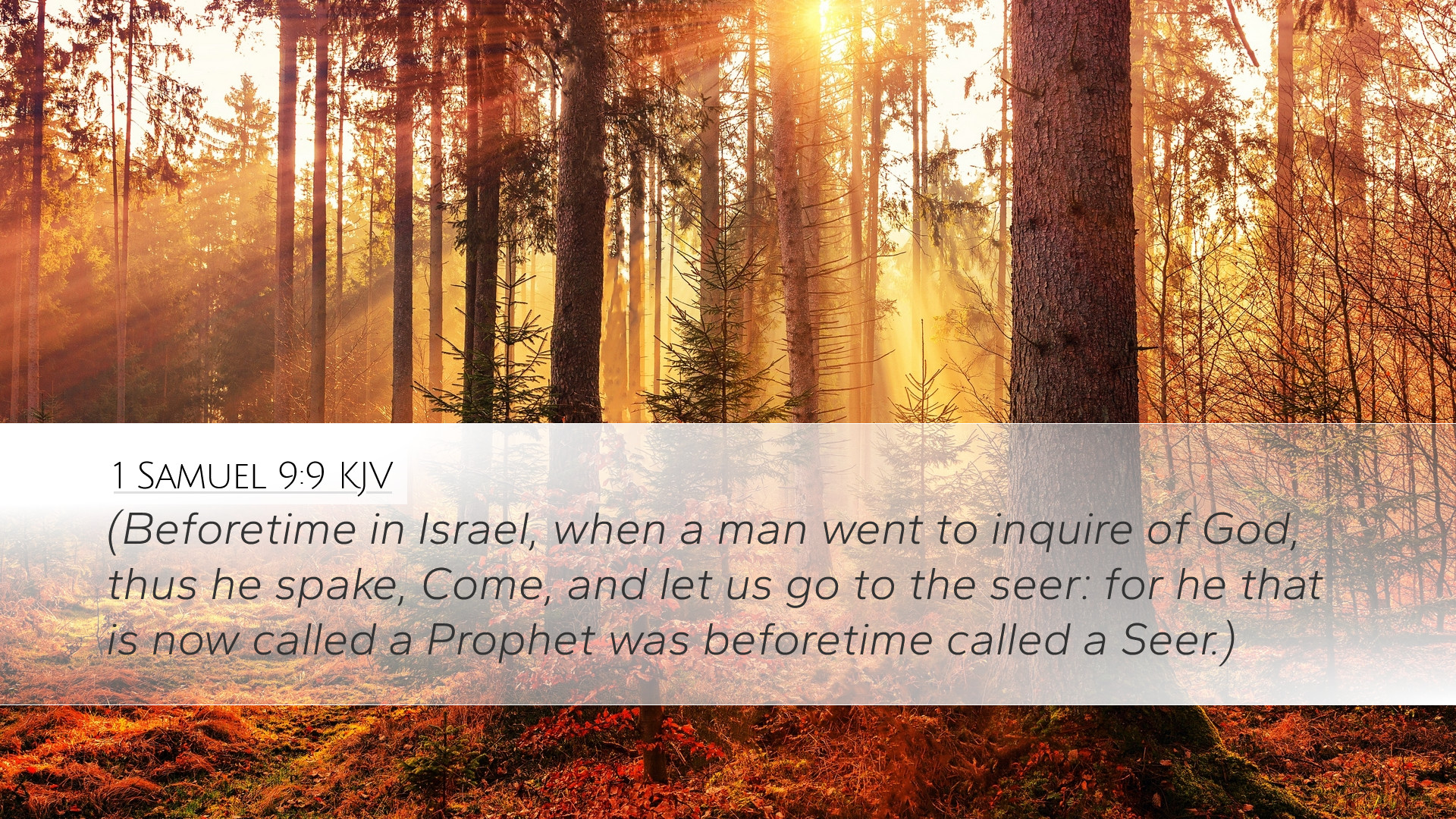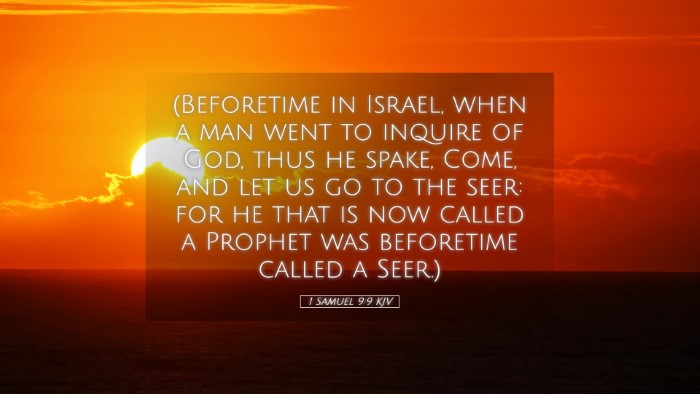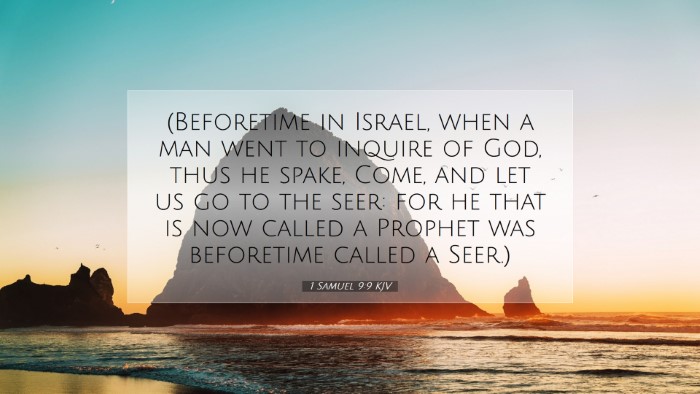Commentary on 1 Samuel 9:9
Verse: “Beforetime in Israel, when a man went to inquire of God, thus he spake, Come, and let us go to the seer: for he that is now called a Prophet was beforetime called a Seer.”
Introduction
The verse 1 Samuel 9:9 serves as a critical transition point in the narrative of Israel's history, illustrating both the development of prophetic ministry and the evolving understanding of divine communication among the Israelites. This commentary synthesizes insights from various public domain sources to provide a comprehensive exploration of its theological implications and historical context.
Historical Context
The period described in 1 Samuel is a time of significant change for Israel. The nation is moving from a theocratic system led by judges to a monarchy. During this transition, the role of prophets, or 'seers' as they were previously known, becomes vital. The phrase “beforetime in Israel” indicates that the practice of consulting the prophetic figures to obtain divine guidance has deep roots in Israel's history.
Matthew Henry's Insights
Matthew Henry emphasizes the importance of the term “seer,” which indicates a person endowed with the ability to perceive God’s revelations. He suggests that the title reflects a more immediate and direct form of receiving divine messages than that of the established prophet. Henry notes that this transition in terminology showcases the development of the prophetic office, highlighting how the understanding of prophets evolved as their role became more formalized during the monarchy.
Albert Barnes' Thoughts
Albert Barnes provides a contextual analysis that links this verse to the broader narrative of 1 Samuel. He notes how people sought out 'seers' when they desired insight from God, indicating a reliance on spiritual leadership for guidance. Barnes argues that the people's usage of the term “seer” underscores the community's understanding of God’s active presence in their lives and their recognition of God’s intermediaries.
Adam Clarke's Commentary
Adam Clarke expands on the distinction between the terms 'seer' and 'prophet.' He elaborates that while both titles reference those who speak on behalf of God, 'seer' often pertains to a broader understanding of receiving revelations through visions or dreams. Clarke highlights that this verse illustrates a significant continuity in the spiritual practices of the Israelites, as they sought out divine wisdom through God's chosen vessels.
Theological Implications
The shift from “seer” to “prophet” marks a key theological development in the understanding of prophetic ministry. This change indicates a progression in how divine revelation was viewed – from a more episodic engagement through individual visions to a sustained prophetic ministry characterized by preaching and teaching.
Divine Communication
The commentary posits that God’s methods of communication remained a central theme. With the desire for engagement with God, the people of Israel depended on the prophets or seers for understanding divine will. This need for understanding reflects a broader theological principle that humanity has always sought to connect with the divine, enduring through various methods and leaders.
Role of the Prophet
-
Intermediary Function: Prophets served as essential intermediaries between God and the people, emphasizing the necessity of mediators in spiritual matters.
-
Community Guidance: The seeking of a seer reveals the communal aspect of faith; people often turned to these figures not only for personal insight but for the direction of the Israelite nation.
-
Spiritual Authority: The prophet's role as a voice for God provided moral and ethical guidance, which was crucial as Israel navigated complex social and political landscapes.
Application for Pastors and Theologians
For pastors and theologians, 1 Samuel 9:9 serves as a profound reminder of the importance of seeking God’s guidance through appropriate and divinely appointed channels. The modern church has its own “seers” and spiritual leaders whose insights can steer congregations towards a deeper understanding of God’s will.
Encouragement for Spiritual Leaders
Just as the Israelites sought guidance from the seers, congregational leaders must inspire their communities to pursue divine wisdom fervently. Leaders should foster an environment where seeking God through prayer and spiritual accountability is paramount.
Study and Devotion
The historical context invites students and scholars to reflect on the evolution of prophetic ministry and its implications for current theological discourse. The richness of God's communication throughout history encourages deeper studies into the nature of revelation and the role of scripture.
Conclusion
In conclusion, 1 Samuel 9:9 encapsulates a pivotal moment in the narrative of Israel, illustrating the significance of prophets as seers and the community’s reliance on them for divine insight. Through this commentary, we find insights that encourage a rich understanding of faith, the importance of spiritual leadership, and the manner in which God communicates with His people throughout their historical and spiritual journey.


